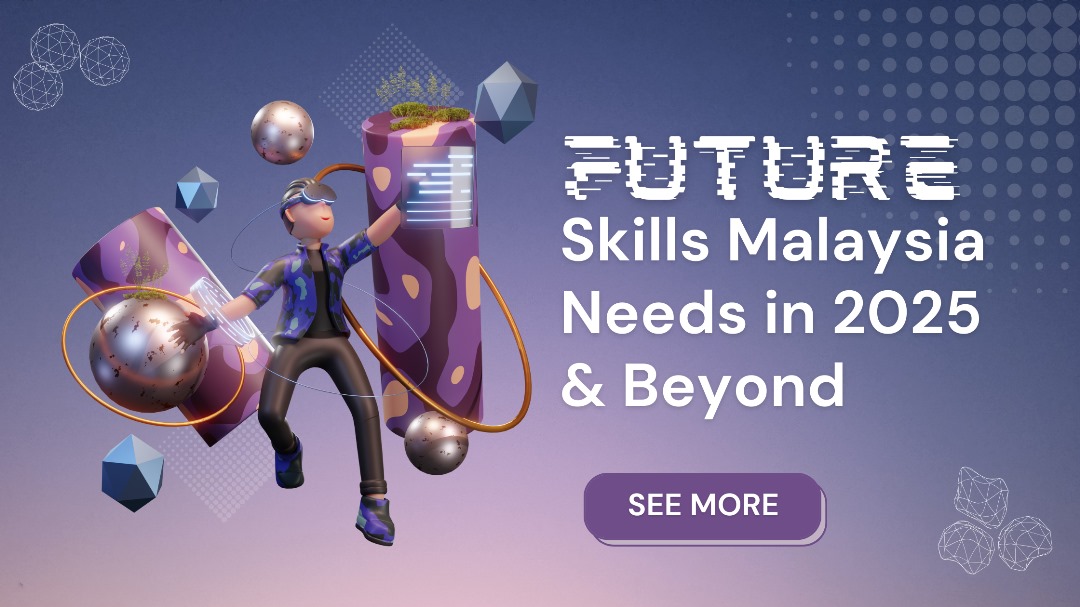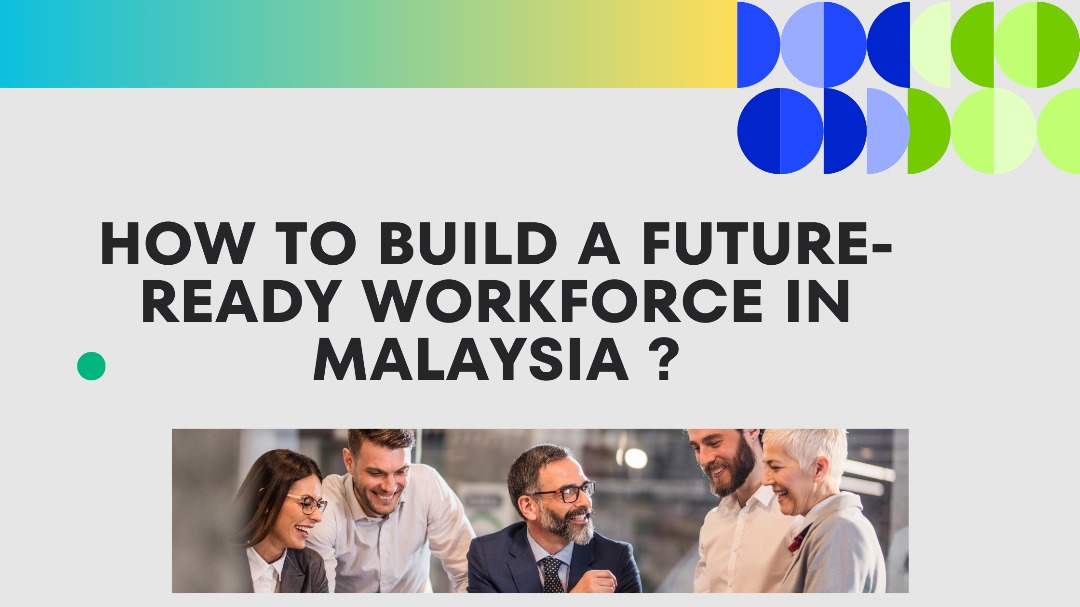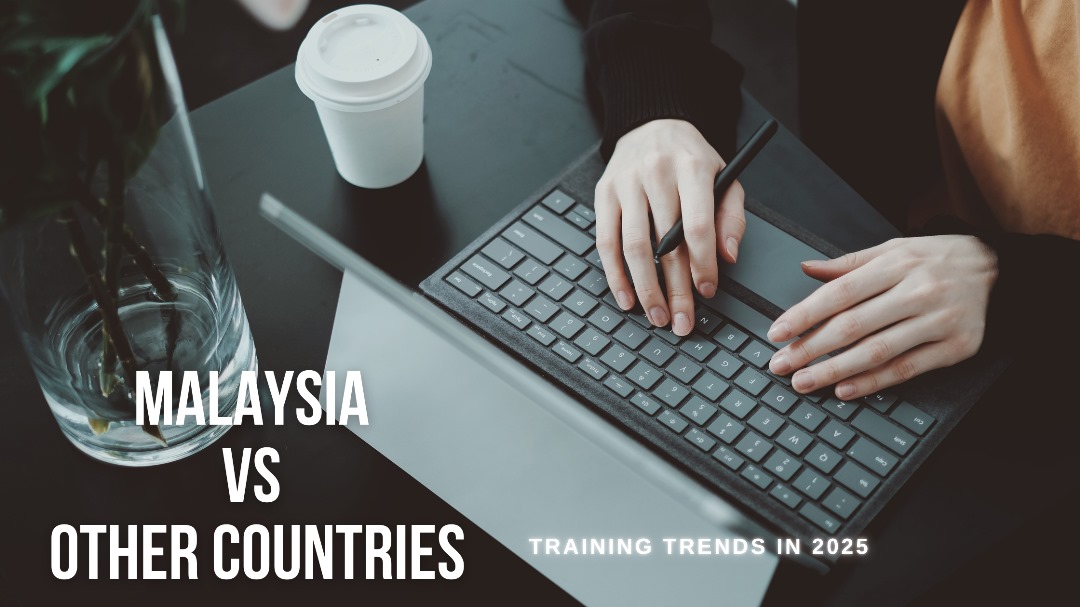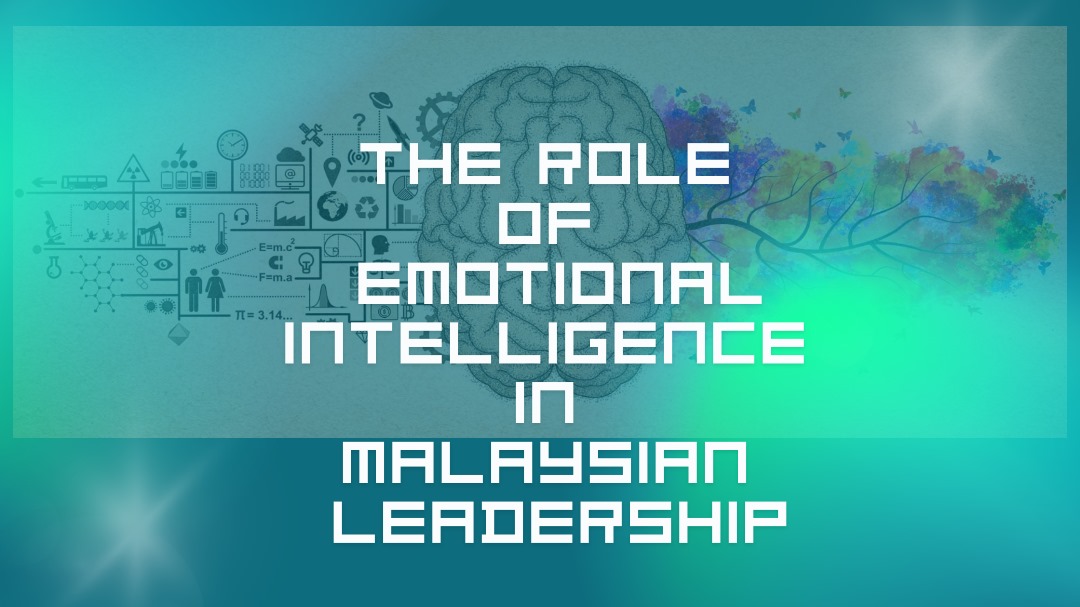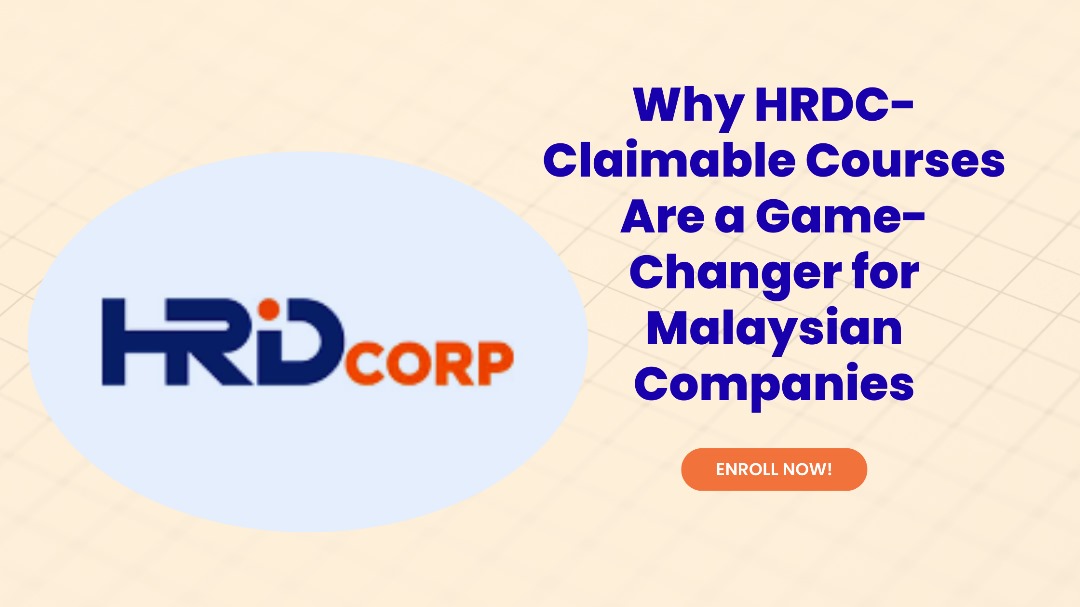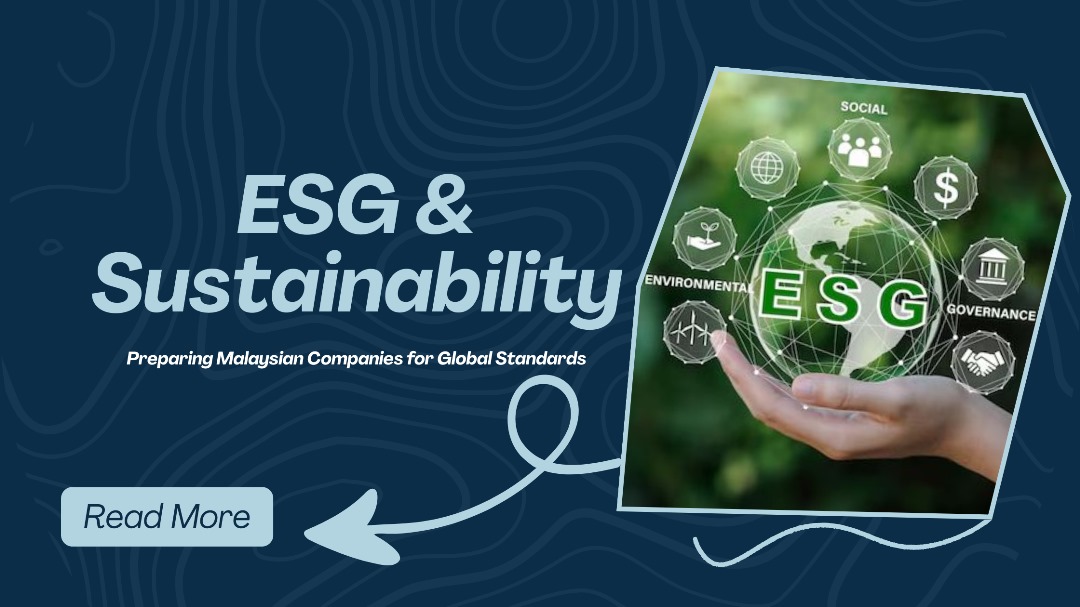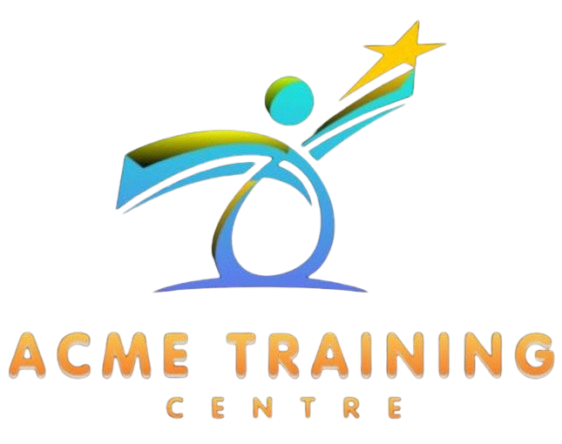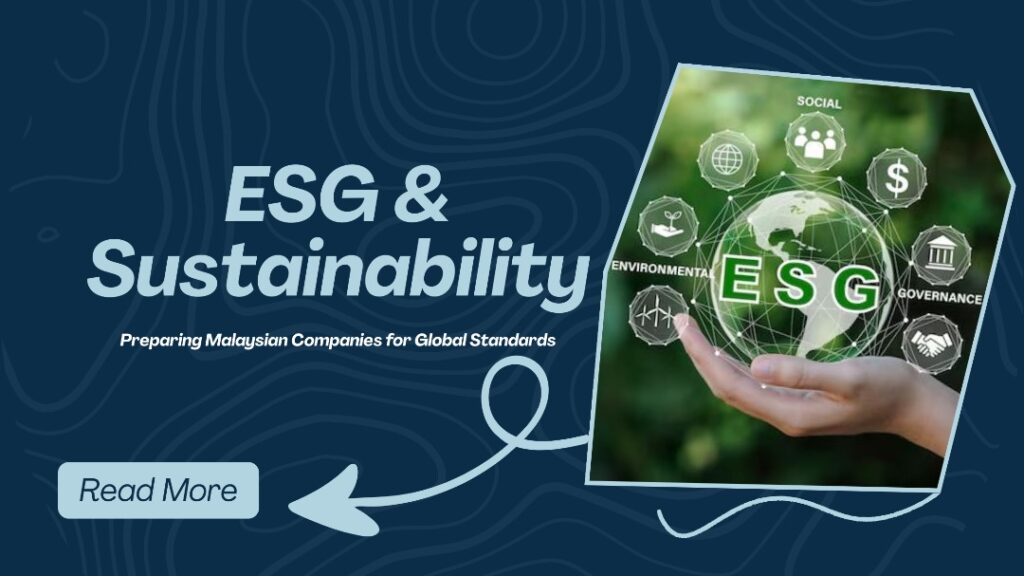
ESG & Sustainability Training
Preparing Malaysian Companies for Global Standards
From Bursa Malaysia to global investors, ESG (Environmental, Social, and Governance) is no longer optional. Companies that don’t adopt sustainability practices risk losing out on investments, contracts, and reputation.
ESG training helps businesses:
- Understand compliance with global and Malaysian reporting frameworks.
- Build sustainable supply chains.
- Align operations with government sustainability goals.
- Enhance brand image and investor trust.
With increasing pressure from regulators and stakeholders, ESG training is becoming a must for companies across construction, manufacturing, and services.
Future Skills Malaysia Needs in 2025 and Beyond
Malaysia is at a turning point in its workforce development journey. With Industry 4.0, ESG compliance, and digital transformation shaping business landscapes, the demand for future -ready skills is stronger than ever. Organizations that fail to adapt risk being left behind.
The future of work in Malaysia requires:

- Digital Literacy – From AI to data analytics, every sector is digitizing.
- Leadership & Emotional Intelligence – Technical skills matter, but leaders with people skills are the real differentiators.
- ESG & Compliance Knowledge – With ESG reporting becoming mandatory for many sectors, employees need training on sustainability.
- Change Management – Companies must learn to adapt to rapid policy, market, and technology shifts.
Malaysia’s HRDC-claimable training programs make it easier for companies to invest in their people. Forward-looking firms are already using training as a competitive advantage.
The future belongs to companies that upskill today.
At Acme Training Centre, we design HRDC-approved programs to equip Malaysian professionals with skills that matter.
👉Contact us today to prepare your workforce for the future.
Your Growth, Our Mission

The Malaysian economy is shifting rapidly with digitalization, automation, and sustainability requirements. For businesses, staying competitive means building a workforce that’s adaptable and future-ready.
Key steps for Malaysian organizations include:
- Upskilling & Reskilling – Employees must learn emerging technologies like AI, blockchain, and data analytics.
- Soft Skills Development – Communication, collaboration, and critical thinking are just as important as technical skills.
- Leadership Training – Managers need change management and emotional intelligence to lead effectively.
- Industry-Specific Programs – Tailored training in construction, manufacturing, logistics, and services ensures sector relevance.
Future-ready employees are the backbone of growth.
👉Contact Acme Training Centre to customize training that prepares your workforce for tomorrow.
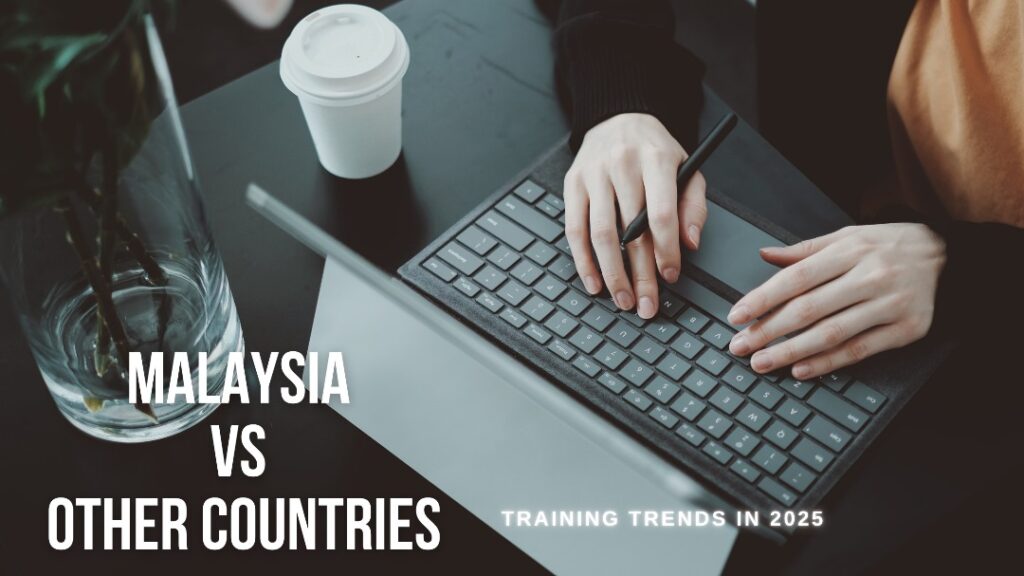
As we step into 2025, training and workforce development are at the center of economic growth worldwide. While Malaysia is pushing hard to upskill its workforce through initiatives like HRDC, other countries are also investing heavily in training for competitiveness. How does Malaysia compare, and what lessons can we learn from global leaders?
Global Training Trends
- United States & Europe – Focus on future skills: AI, ESG, sustainability, data analytics, and leadership for hybrid workplaces. Companies invest heavily in digital learning platforms, micro-credentials, and lifelong learning.
- Singapore – Prioritizes specialized and high-tech programs, including AI, blockchain, and advanced cybersecurity. Strong government funding supports individuals and SMEs equally.
- China & India – Massive investments in scale-based training: coding, STEM, and digital literacy for millions. These countries treat upskilling as a national agenda to stay competitive globally.
Malaysia’s Training Priorities in 2025
- HRDC-Claimable Programs – Malaysia uniquely supports employers by reimbursing training investments, lowering financial barriers.
- Sector-Specific Focus – Construction, logistics, manufacturing, and professional services benefit from compliance-related training (SST, ESG, workplace safety).
- Soft Skills Development – Emotional Intelligence, Change Management, and Leadership remain in high demand for Malaysia’s multicultural workforce.
- Digital Transformation – Programs in AI, blockchain, and data analytics are gaining traction but still need greater awareness among SMEs.
- Where Malaysia Stands Out
✅Affordability – Training costs are lower compared to Singapore, Europe, or the US.
✅Government Support – HRDC schemes give Malaysian businesses a major cost advantage.
✅Diversity in Workforce – Training is naturally tailored to multi-ethnic and multi-lingual environments, making Malaysia unique.
Malaysia is well-positioned in 2025 to leverage affordable, HRDC-supported training to upskill its workforce. While countries like Singapore, the US, and China are setting benchmarks in high-tech training, Malaysia’s unique advantage lies in balancing cost, accessibility, and relevance to local industries.
👉At Acme Training Centre, we help Malaysian companies align with global training trends while making full use of HRDC support. Contact us today to future-proof your workforce.
- Where Malaysia Stands Out
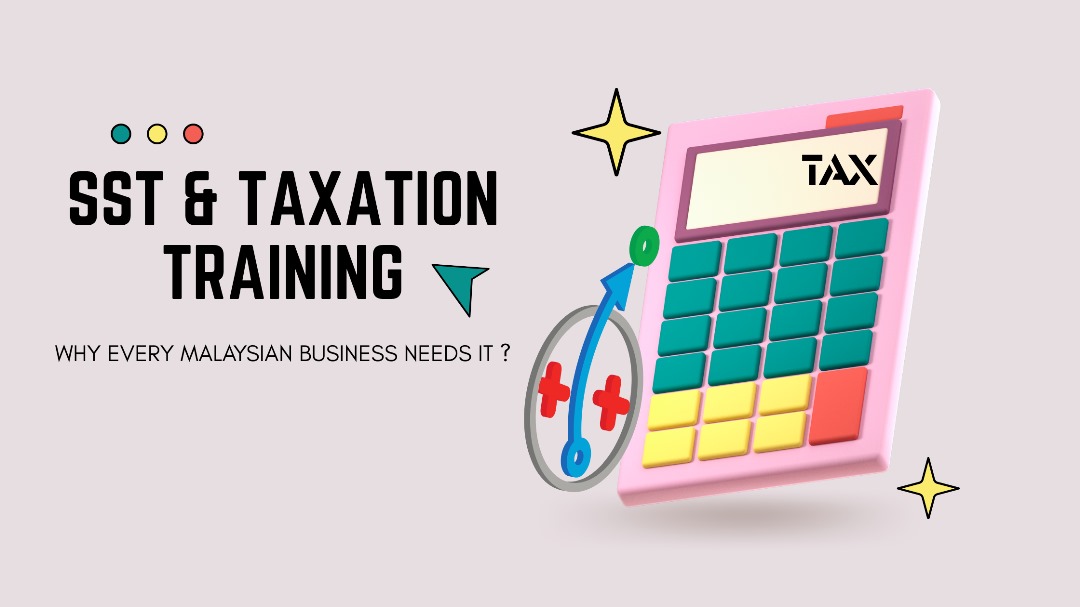
Many Malaysian businesses underestimate the risks of non-compliance with Sales and Service Tax (SST). Yet, tax penalties, audits, and operational disruptions can cost companies dearly.
Common SST mistakes include:
- Misclassifying taxable services.
- Missing filing deadlines.
- Poor record-keeping.
- Not updating processes with SST amendments.
With SST rules varying across industries (construction, logistics, professional services), training employees is essential. A well-trained team ensures compliance, avoids penalties, and increases business credibility.
Investing in SST training isn’t a cost—it’s a safeguard for your company.
👉Learn more about our SST programs for multiple industries and make compliance hassle-free.
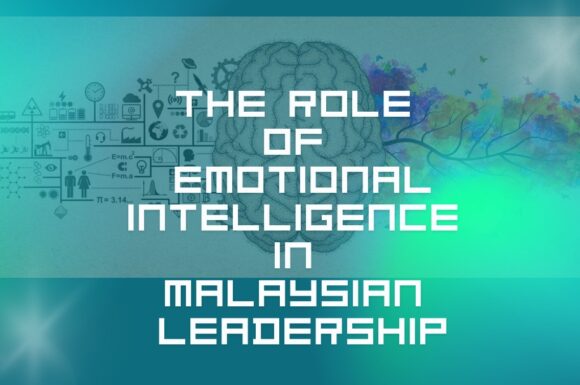
Technical know-how can take a leader far, but Emotional Intelligence (EI) is what makes them truly effective. In Malaysia’s diverse and multicultural workplaces, EI is a leadership superpower.
EI skills that leaders need include:
- Self-Awareness – Recognizing emotions before they influence actions.
- Empathy – Building strong relationships across diverse teams.
- Self-Regulation – Handling stress and conflict constructively.
- Motivation & Social Skills – Inspiring and guiding others effectively.
Studies show EI-driven leadership improves productivity, employee engagement, and customer satisfaction.
In Malaysia, where diversity is strength, leaders with EI stand out.
👉Enroll in our Emotional Intelligence for Leaders program and transform your leadership style.

Why HRDC-Claimable Courses Are a Game-Changer for Malaysian Companies
Training budgets are always a concern for HR managers. The Human Resource Development Corporation (HRDC) makes upskilling affordable through its levy and claimable schemes.
Benefits of HRDC-claimable courses include:
- Cost Efficiency – Companies save while investing in talent.
- Variety of Programs – From leadership to digital skills, HRDC covers multiple domains.
- Boosts Retention – Employees stay longer when their development is prioritized.
- Supports National Agenda – Aligns with Malaysia’s push for upskilling and productivity growth.
Don’t let budget limitations stop your training plans.
👉Explore our HRDC-claimable programs and maximize your training ROI today.
